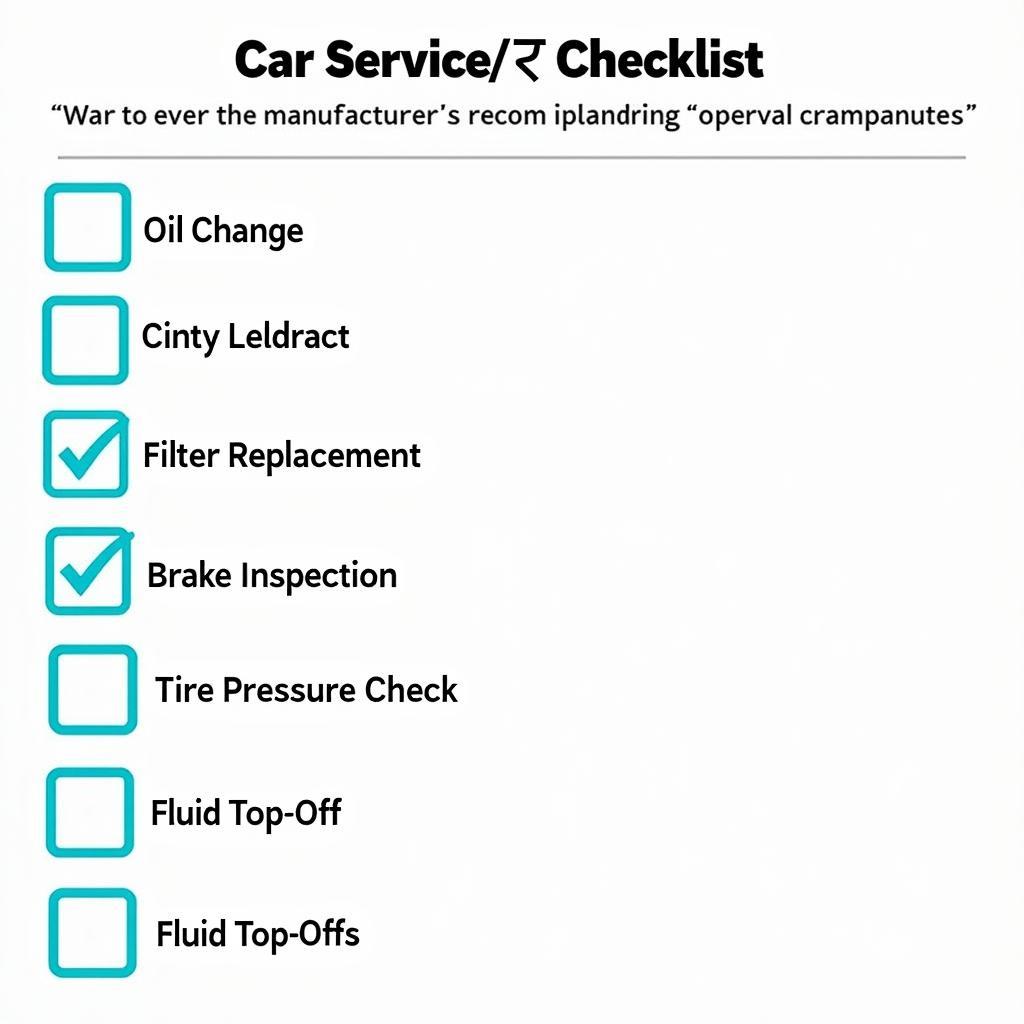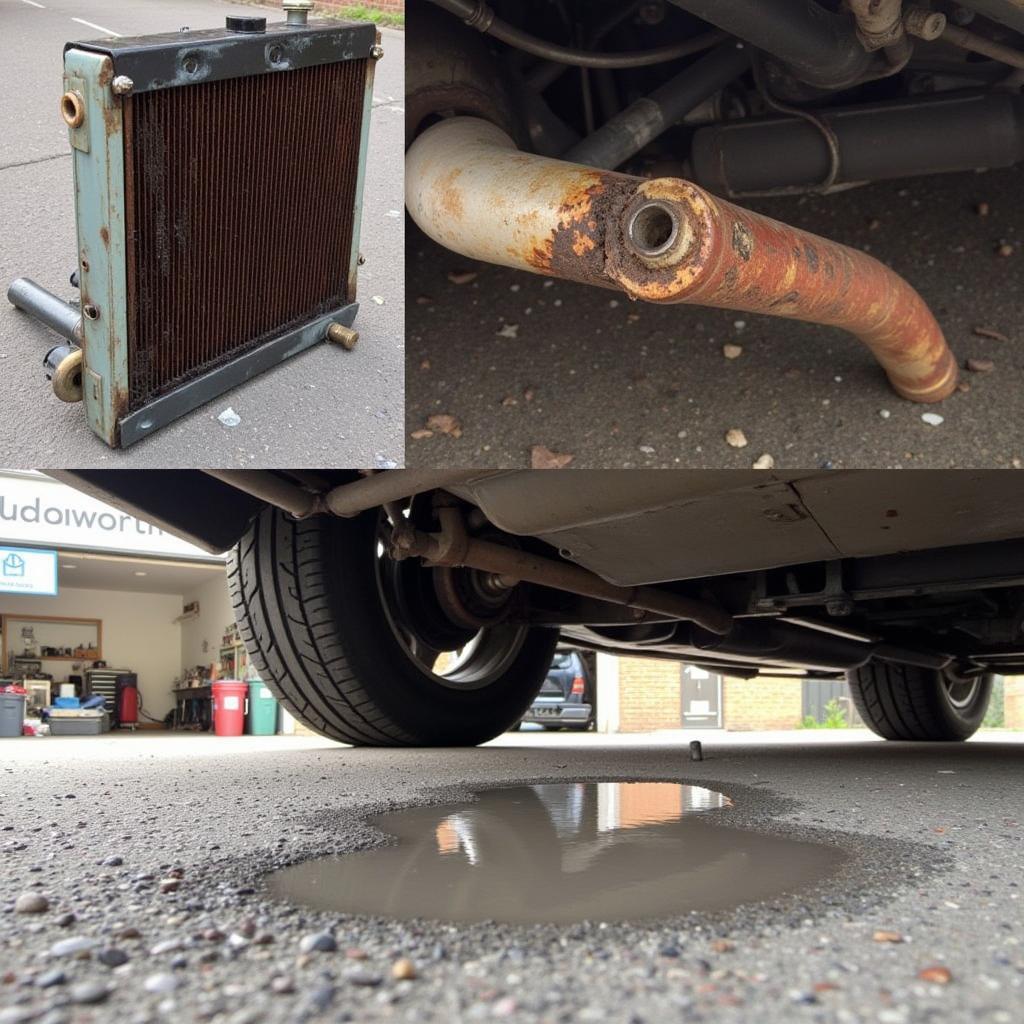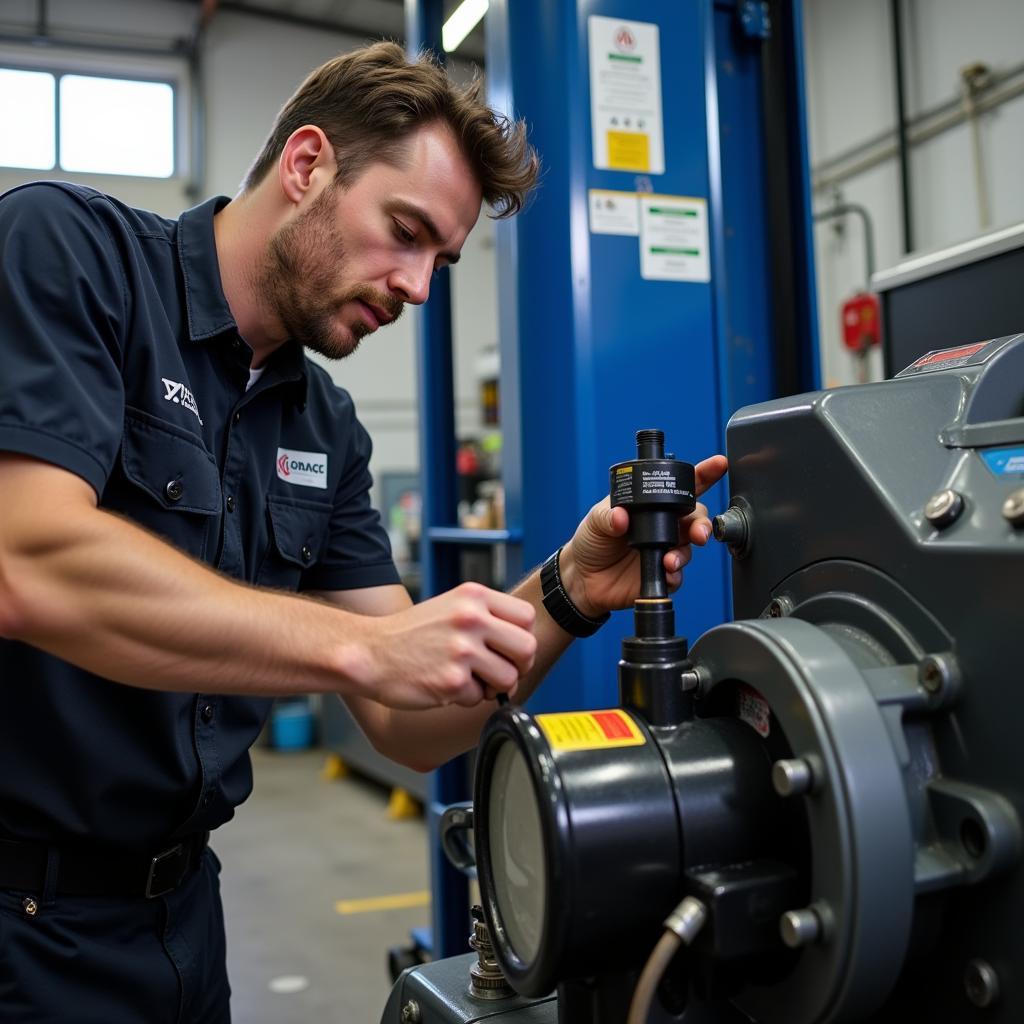What Does It Mean to Have the Car Serviced?
Having your car serviced is more than just an occasional check-up; it’s essential for maintaining its performance, safety, and longevity. It’s about proactive care, addressing potential issues before they escalate into costly repairs. Understanding what’s involved in a car service can empower you to make informed decisions about your vehicle’s maintenance and ensure a smooth, safe, and enjoyable driving experience.
Regular car servicing offers numerous benefits, from improved fuel efficiency to increased resale value. But what exactly does “car service” entail? This comprehensive guide will delve into everything you need to know about car servicing, from understanding the different service types to recognizing the tell-tale signs that your car needs attention. We’ll explore why regular maintenance is crucial and how it contributes to a safer and more reliable driving experience. Want to know more about what a full car service entails? Check out what is carried out in a full car service.
Decoding Car Service: What’s Included?
A car service encompasses a series of checks, adjustments, and replacements aimed at ensuring your vehicle operates at its peak. These procedures vary depending on the type of service—interim, full, or major—and the manufacturer’s recommendations.
Interim Service: The Quick Check-Up
This service is typically recommended every 6 months or 6,000 miles, providing a vital check on essential components. An interim service often includes an oil and filter change, brake inspection, tire pressure check, and topping off essential fluids.
Full Service: The Comprehensive Approach
A full service is more extensive, generally recommended annually or every 12,000 miles. It covers everything included in an interim service, plus additional checks like spark plug replacement, air filter inspection, and a more thorough examination of the braking system. Find out more about what does servicing a car mean.
Major Service: The Deep Dive
This service is the most comprehensive and is typically recommended every 24,000 miles or two years. It includes all the elements of a full service, along with more in-depth inspections and replacements, such as checking the timing belt, replacing the fuel filter, and thoroughly examining the suspension. Curious about the cost? Explore how much does a service to your car cost.
 Car Service Checklist
Car Service Checklist
Why is Regular Car Servicing Important?
Regular car servicing is crucial for several reasons:
-
Safety: Maintaining your brakes, tires, and steering system ensures your safety and the safety of others on the road.
-
Reliability: Regular servicing minimizes the risk of breakdowns and keeps your car running smoothly.
-
Performance: A well-maintained car performs better, offering improved fuel efficiency and handling.
-
Resale Value: A comprehensive service history can significantly increase the resale value of your vehicle. Want to learn more about your car’s service history? Visit how can i find service history on my car.
Recognizing the Signs Your Car Needs a Service
While regular servicing is scheduled based on mileage or time, certain signs indicate your car might need attention sooner:
- Unusual noises
- Warning lights on the dashboard
- Reduced fuel efficiency
- Vibrations or shaking
- Difficulty starting
- Fluid leaks
“Ignoring these signs can lead to more serious and costly problems down the line,” says automotive expert, John Miller, ASE Certified Master Technician. “Regular servicing is a small investment that can save you significant money and hassle in the long run.”
What Does it Mean to Have Your Car Serviced Regularly?
Maintaining a regular service schedule is a commitment to your car’s well-being. It means adhering to the manufacturer’s recommendations and addressing any issues promptly. This proactive approach not only extends the life of your vehicle but also provides peace of mind knowing your car is in optimal condition.
“Think of regular servicing as preventive medicine for your car,” says automotive consultant, Sarah Davis. “Just like regular check-ups with your doctor, regular car servicing helps identify and address potential problems before they become major issues.”
In conclusion, having your car serviced means taking proactive steps to ensure its safety, reliability, and longevity. It’s an investment that pays dividends in terms of performance, peace of mind, and resale value. By understanding what a car service entails and recognizing the signs your car needs attention, you can take control of your vehicle’s maintenance and enjoy a smoother, safer driving experience. Remember, regular servicing is more than just maintenance; it’s an investment in your vehicle’s future.
FAQ
-
How often should I have my car serviced? Consult your owner’s manual for manufacturer recommendations.
-
What’s the difference between an interim and a full service? A full service is more comprehensive than an interim service.
-
How much does a car service cost? The cost varies depending on the type of service and your vehicle.
-
Where can I find a reputable car service center? Ask for recommendations from friends and family or check online reviews.
-
What should I do if I see a warning light on my dashboard? Consult your owner’s manual or contact a qualified mechanic.
-
Can I service my car myself? While some basic maintenance can be done DIY, it’s recommended to have your car serviced by a professional.
-
What’s the best way to keep track of my car’s service history? Keep all your service records in a safe place and consider using a digital service tracker.
Need support? Contact us via WhatsApp: +1(641)206-8880, Email: [email protected]. Our customer service team is available 24/7.

